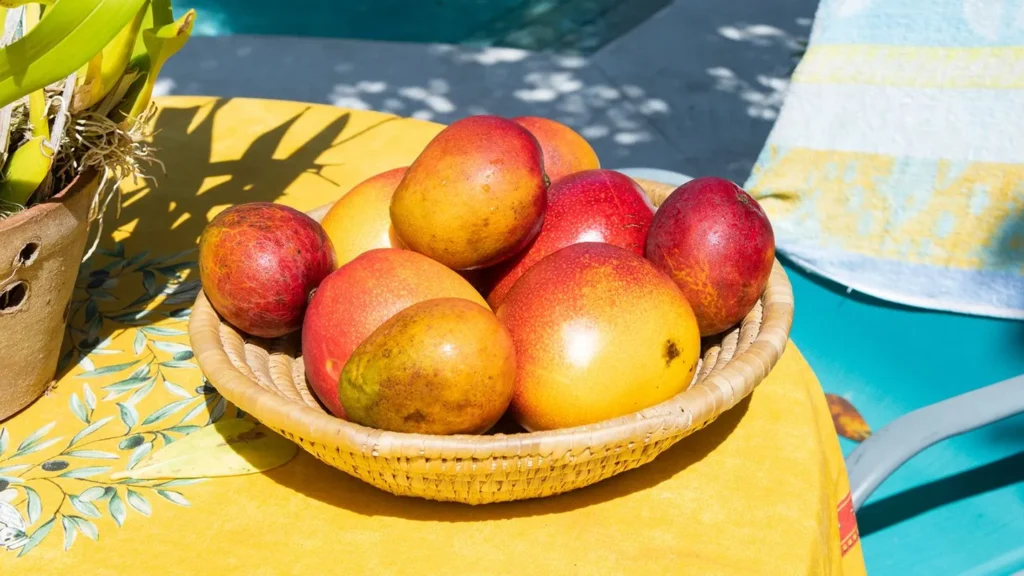Read time : 3.5 minutes

When we think of mango, what often comes to mind is its juicy, tropical sweetness. But behind that rich flavor is a powerhouse of health benefits—especially when it comes to its antioxidant content. If you’re looking to boost your immune system, fight inflammation, and support your heart and brain health, mangoes might be your new best friend.
What Makes Mango a Good Source of Antioxidants?
Mangoes are rich in several types of antioxidants, but one compound that stands out is mangiferin. Known as a “super antioxidant,” mangiferin is unique to mango and has been studied for its ability to combat oxidative stress, the cell damage caused by free radicals. Over time, oxidative stress contributes to aging and chronic diseases like heart disease, diabetes, and even certain cancers.
- In addition to mangiferin, mango is also a natural source of:
- Vitamin C – Boosts the immune system and supports skin health.
- Beta-carotene – The plant-based form of vitamin A that helps with vision and skin protection.
- Polyphenols – Compounds that neutralize harmful free radicals in the body.
How Antioxidants in Mango Support Your Health
Let’s break down how regular consumption of mango can impact your body:
- Fights Inflammation
Mangiferin has anti-inflammatory properties, making mango a smart snack for people dealing with chronic inflammation-related conditions such as arthritis or metabolic syndrome. - Supports Heart Health
Research shows that antioxidants in mango can help reduce LDL cholesterol oxidation, a known contributor to plaque build-up in arteries. This helps in reducing the risk of hypertension and heart disease. - Enhances Brain Function
Oxidative stress affects the brain and contributes to cognitive decline. Mango’s antioxidants help protect brain cells and may aid in maintaining memory and focus, especially in aging adults. - Improves Skin and Eye Health
Vitamin C and beta-carotene in mango are skin-loving nutrients that help repair skin tissues and protect against UV damage. They also help maintain healthy vision.
How to Add Mango to Your Diet for Maximum Benefits
Eating mango fresh and ripe is one of the best ways to enjoy its benefits. But there are plenty of creative and traditional ways to incorporate mango into your meals:
Add diced mango to your morning oats or porridge.
Blend into a smoothie with tiger nuts and ginger for an antioxidant-rich drink.
For people with diabetes, it’s best to consume mango in moderation. Whole fruit is better than juice due to slower sugar absorption and better fiber content.
Final Thoughts: Mango, More Than Just a Treat
Mango isn’t just a fruit, it’s a nutrient-dense, antioxidant-rich food that plays a vital role in protecting your body from the inside out. From fighting inflammation to improving skin and heart health, mango is a natural way to add both flavor and function to your meals.
So next time you enjoy a slice of mango, know that you’re doing much more than satisfying your sweet tooth, you’re feeding your body a tropical dose of wellness.
Meet Your Ai Personal Trainer
👉Personalized workouts. Progress tracking. Real results.
MyHealthCop AI is your pocket trainer — always ready, always smart.
Download the App to Take your free Ai health assessment Today [Take Assessment]
RD, LD Julius Sammah
MyHealthCop Certified Dietician